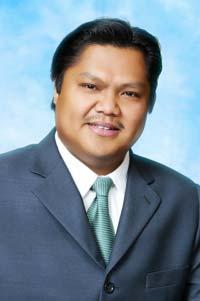New tax charges against Chingkoes

The Philippines has renewed its efforts to go after a pair of tax fugitives who have set up their base in Richmond, B.C.
Reports out of Manila said the Philippines Department of Justice has decided to file separate tax evasion charges against businessman Faustino Chingkoe, his wife Gloria and three others accused of plunder in connection with a controversial multi-billion peso tax credit scam.
Deputy Revenue Commissioner Gregorio V. Cabantac said this will be “the first tax evasion case related to the tax credit scam” that saw Philippine lose hundreds of millions of dollars.
The fugitive couple , who were first discovered in Richmond by the Asian Pacific Post in 2003, own a million-dollar house, three expensive condos and sent their daughters to the Crofton House private school.
In addition to the latest tax case, they face a host of other charges in The Philippines, including “plunder,” and falsification of documents.
It is expected that Philippines will once again renew its calls to Canada send the couple back to Manila.
One report said that Faustino Chingkoe may currently be in China.
A Department of Justice resolution in Manila dated May 14 ordered the Office of the State Prosecutor to file a criminal case for violation of the tax code against Chingkoe and his wife Gloria.
The DoJ was acting on a complaint filed by the Bureau of Internal Revenue, accusing Chingkoe and other officers of the Diamond Knitting Corp. of not paying P104.5 million in taxes, including penalties and interest, from 1994 to 1997.
Chingkoe and his wife were chairman and treasurer, respectively, of the Diamond Knitting Corp. Also named were Benick Soriano and Reynaldo Andaya, who served as accountant and general manager, respectively, of the textile and clothing firm.
The tax case is separate from the plunder charges already filed against the Chingkoes for allegedly defrauding the government of a total of P2.5 billion through the sale of fake tax credit certificates (TCCs) in the mid-90s.
The amount represents half of some P5.3-billion worth of fraudulent TCCs sold to local oil giants Petron Corp. and Pilipinas Shell Petroleum Corp., among others.
A TCC is usually issued by the government to firms that import raw materials and then export the finished products. As an incentive, holders may use TCCs in paying taxes or they can sell them at a discount.
The Chingkoe’s network of companies is believed to be the single biggest group that fraudulently acquired TCCs then sold them to big companies.
“The BIR is also requesting the issuance of warrants of distraint and levy against the properties of the respondents,” Cabantac said in Manila.
The new tax charges come after Manila has asked the Canadian taxman to help return a fugitive Filipino couple last year.
Philippines Internal Revenue commissioner Lilian Hefti, in a letter to Canada’s International Tax Directorate director general, requested information that will help in the extradition and prosecution of businessman Faustino Chingkoe and his wife Gloria. Filipino prosecutors want to know if the Chingkoe couple are registered taxpayers in Canada and whether they paid the corresponding taxes of the C $63.9 million income they acquired in the Philippines from 1995 to 1998.
“In accordance with the exchange of information provisions of our income tax treaty, we request your assistance in obtaining information which are vital in strengthening evidence for the filing of tax cases against the aforementioned spouses,” Hefti said in her letter.
“We have information that part of the proceeds of the illegal sale of the fraudulently obtained tax credit certificates were diverted by the spouses Chingkoe to Canada and were used by them to fund business transactions and purchase of properties,” Hefti said.
In the three-page document, Hefti asks for “assistance in obtaining information which (is) vital in strengthening evidence for the filing of tax cases against the aformentioned (Chingkoe) spouses.”
Hefti wanted to know:
• if the Chingkoes are registered taxpayers in Canada
• if they declared their multi-billion-peso income from 1995-1998 in Canada
• if Ottawa can confirm ownership of the four Chingkoe properties in Richmond
• if there are available business records under the Chingkoe names
• if Ottawa can provide income tax returns and other tax returns filed by the Chingkoes
• if Ottawa can provide tax documents in relation to the Chingkoe’s Richmond properties
It could not be determined if Manila got any answers.
A first attempt by the Philippine Department of Foreign Affairs to extradite Gloria Chingkoe in 2003 faltered on Ottawa’s stringent requirements on documentary evidence, a common complaint from Canada’s extradition partners in Asia, where legal procedures do not necessarily mirror those of Commonwealth countries like Canada.






